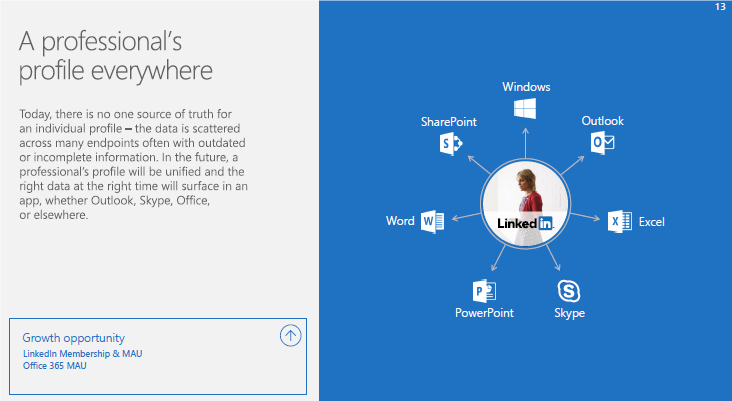The obligatory Microsoft - LinkedIn take
If you regularly write or otherwise opine about technology, HR, HR tech, recruiting, or pretty much anything to do with enterprise technology, then Al Gore and the rest of the creators of the internet have decreed that you must have some kind of a take, any kind at all really, about this week's big news of Microsoft announcing its plans to acquire LinkedIn for $26B large.
So while EVERYONE else has probably weighed in on this a couple of days ago and the immediate window for 'newsy' analysis is past, I am going to direct my take in a slightly different direction.
Aside - before getting to my point I just have to laugh (once again), at all the experts and analysts and pundits who within hours of this announcement somehow were able to crank out 1,000 words explaining to the rest of us what this news really meant. No one, I mean NO ONE, was thinking about Microsoft making this move before it was announced, then to suddenly act as if you have it all worked out within an hour is laughable. And also a little insulting. And like this take, everyone will forget what you wrote after the fact. Tell us it's going to happen BEFORE it happens sometime and you will impress us. All of us can wax profound after the fact. Ok, rant over.
There was one slide in the official Microsoft public presentation and announcement on Monday that really caught my attention and that of all of this, might be the most interesting aspect of this deal in the coming years. Here's the slide from MSFT, then some free-range, organic, farm-raised comments from me.

Since the quality of the image isn't all that great, I want to repeat the key part of the text on the left side of the slide - "There is no one source of truth for an individual (that's me and you by the way), profile... In the future, a professionals profile will be unified..."
Those are the lines that I noticed the most in the entire announcement, and here's why I think they are interesting and potentially troubling for MSFT, for your organization, and for all of us as professionals.
Why? Three reasons...
1. While just about all of us have come to a reluctant realization that we probably should and do have a reasonably complete professional profile and history on LinkedIn, that realization comes from years of consideration about LinkedIn, and what LinkedIn was doing with our data. We may not love the fact that LinkedIn became a $26B company largely on the value of our profile information we supplied (for free), but we came to decide the personal value to us was at least worth the tradeoff that has now made lots of LinkedIn investors rich.
But will we be ok making those same kinds of tradeoffs knowing 'our' data and profiles are now owned by Microsoft? Will the 400M or so users be readily willing to give Microsoft the same kind of pass that we gave LinkedIn, given the perceived value to us? I am not so sure. Or at least I am not that sure it's a given that people already on LinkedIn won't be too bothered by this. And I know it is not a given that people who ar not yet on LinkedIn won't be given at least some pause turning over their profiles and history to an even more gigantic company in Microsoft.
2. From an organizational standpoint, just how excited are you as an HR or business leader with Microsoft's plan to make its (LinkedIn/Office/Skype/Whatever else they have) data become the "unified" professional profile for your employees? Aren't you at least a little bit concerned by having more and more of your employee's data about what they are working on and who they are collaborating with becoming at least potentially part of some LinkedIn-based unified and possibly public profile? Are you sure that this won't be even more of a competitive issue for you and your organization? There are still companies and leaders that would prefer their employees not be on LinkedIn at all - so they are not as likely to be recruited away by a competitor.
3. Finally, from a personal angle how much do most professionals want their current organization to be even more aware of what an employee is doing on LinkedIn? Would you somehow get 'red flagged' as a flight risk if Microsoft's big data engine spots and alerts your organization's management that you recently looked at an external job posting or have just connected with two or three third-party recruiters? I know some of what all of us do on LinkedIn is potentially visible to our current management and company, but an even more embedded and universal profile (LinkedIn based), that in theory becomes the de facto internal corporate identity as well just exposes more and more of your LinkedIn actions to your employer, whether or not you want that exposure or not.
Ok, that's it for me, let me know what you think - am I wrong to not be leading the cheers for this acquisition?

 Steve
Steve
Reader Comments (1)
I thought the same thing when I read the slide. You are spot on.
The only good news is that it will take them at least 18 months to get any tool up to beta, and probably 72 months to make anything generally available. Until then, start working on your 2nd fake "so you can be anonymous" email and LinkedIn profile.
Looking forward to a released terms and conditions. I might actually read them this time.